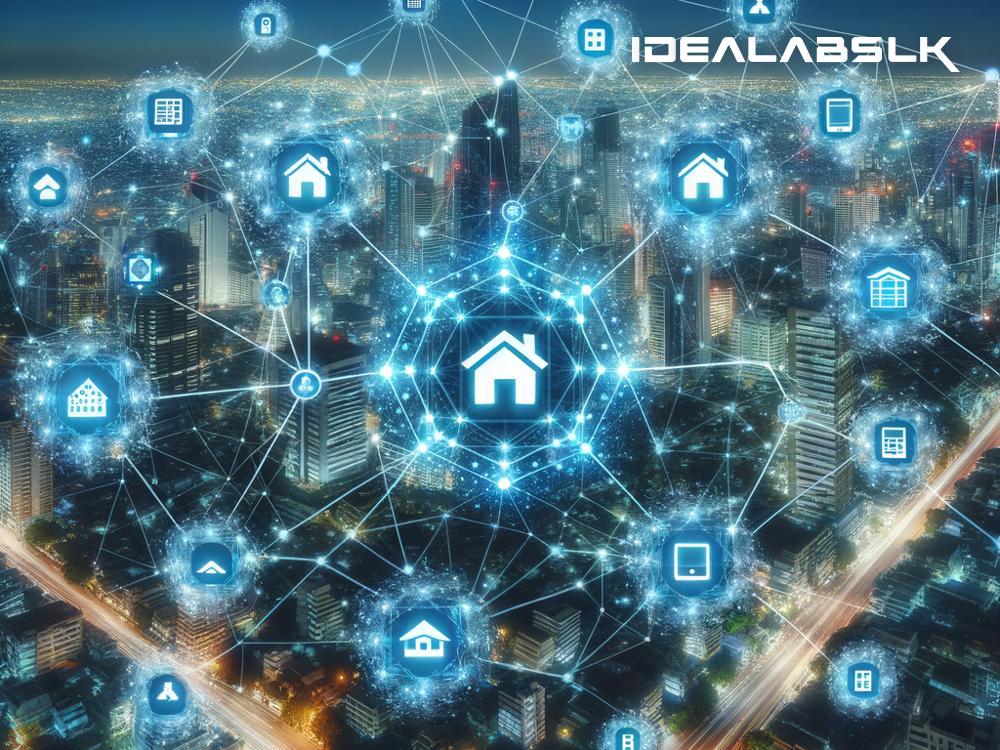Unlocking Transparency in Real Estate Sales with Blockchain Technology
In today's fast-paced world, buying and selling property can often feel like navigating through a thick fog of complexity and uncertainty. From heaps of paperwork to the fear of fraud, the real estate industry, despite being one of the oldest and most lucrative sectors, has struggled with issues of transparency for decades. However, that's all set to change with the introduction of blockchain technology. But what is blockchain, and how exactly does it have the potential to revolutionize real estate transactions, making them more transparent, secure, and efficient? Let's dive in.
Blockchain Simplified
At its core, blockchain is a type of digital ledger technology. Imagine it as a high-tech logbook that records transactions across many computers in such a way that the records cannot be altered retroactively. This technology, which powers cryptocurrencies like Bitcoin, is known for its high security, transparency, and efficiency. Each transaction on the blockchain is encrypted and linked to the previous one, making a chain (hence the name). This makes the data tamper-proof and trustworthy.
The Current Haze in Real Estate Transactions
Traditionally, real estate transactions are lengthy, document-heavy, and involve multiple stakeholders, including buyers, sellers, agents, legal representatives, and banks. This complexity often leads to miscommunication, errors, and delays. Not to mention, the opaqueness of the system can be a breeding ground for fraudulent activities such as double-selling of properties or the concealment of crucial information about the asset. These challenges call for a seismic shift towards more transparent processes, and blockchain technology promises just that.
The Clear Sky: Blockchain for Real Estate Transparency
Here's how blockchain can transform the real estate industry by enhancing transparency and security:
1. Immutable Records
Each transaction on a blockchain is recorded with an immutable timestamp and cannot be altered or deleted. For real estate, this means that the entire history of a property, including previous sales, existing mortgages, and even structural renovations, can be accurately and securely documented. This accessibility of information makes the buying process more transparent, enabling buyers to make well-informed decisions.
2. Smart Contracts
One of the most exciting applications of blockchain technology is smart contracts. These are self-executing contracts with the terms of the agreement directly written into code. In the context of real estate, smart contracts can automate various aspects of the sales process, from escrow to title transfers. This reduces the need for intermediaries, lowering the risk of fraud and errors, and importantly, making the transaction process faster and more transparent.
3. Tokenization
Blockchain enables the tokenization of physical assets, including real estate. This involves dividing property into shareable digital tokens that represent ownership or a share of the property. This makes real estate investments more accessible and liquid, and because each transaction is recorded on the blockchain, owners and investors have a transparent view of the property's ownership history and current value.
4. Synergy with Other Technologies
Blockchain doesn't work in isolation. When combined with other technologies like the Internet of Things (IoT) and artificial intelligence (AI), it can provide real-time, accurate data about a property. From structural integrity to energy usage, this information can be securely stored and shared on the blockchain, providing an additional layer of transparency and trust for buyers and investors.
Looking Ahead
While the promise of blockchain technology for real estate is immense, its adoption is still in the early stages. Nevertheless, there are already a handful of startups and pilot projects around the world exploring its potential. As the technology matures and regulatory frameworks evolve, we can expect to see more widespread adoption, making real estate transactions more transparent, secure, and efficient.
Conclusion
The real estate industry is on the cusp of a digital transformation, with blockchain technology leading the charge. By providing a secure, immutable, and transparent ledger for transactions, blockchain has the potential to address many of the industry's longstanding challenges. From making property histories accessible to streamlining sales processes with smart contracts, blockchain could very well be the key to unlocking a new era of transparency and trust in real estate. As we move forward, embracing this technology will not only enhance the buying and selling experience but also contribute to a more open and fair property market.

